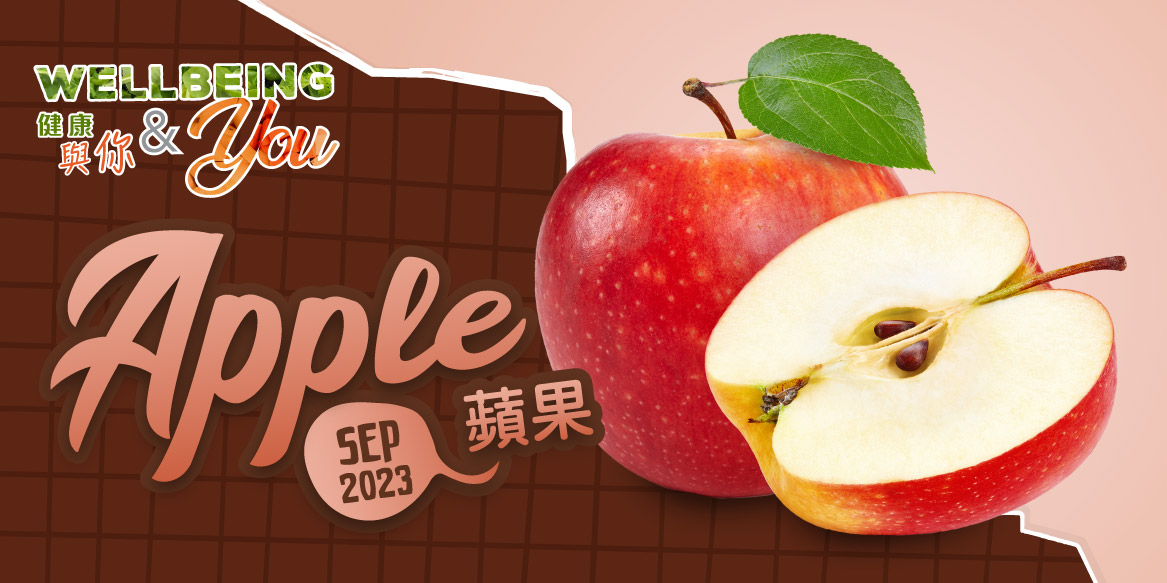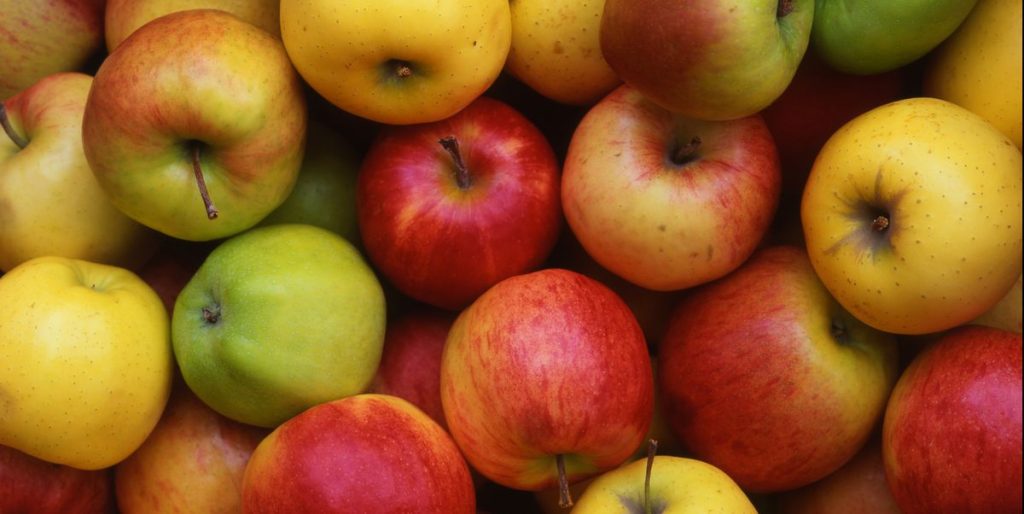[Wellbeing & You] Apple

Eat Seasonal
People have been fascinated by the apple for millennia, as they are equipped with various nutrients and divine taste. Generally, apple harvest time runs from August until November. Two conditions influence apple’s ripening and taste — the weather and apple cultivars. Since the length of daylight plays a critical role in determining the sweetness of apples, the best time to harvest is before December to ensure sufficient daylight is allowed. Besides, there are over 7500 cultivars of apples worldwide. Some apple cultivars taste sour, with Green Apple being a common example. The best way of storing apples is keeping them in a dark, cool place. Apple can be kept at room temperature for up to 3 weeks while it can be stored in the refrigerator for up to 6 weeks. As far as it goes, preserving apples in the refrigerator can greatly maintain their freshness. Here is a fun fact about apples: they release a gas, ethylene, when they ripen. When some fruits are stored in a close proximity to apples, they will ripen more quickly!
Nutrition
Apples can be commonly found in different dishes. For instance, apple salad and apple soup are popular in the summer and winter respectively. Furthermore, apple pie stands as the famous dessert throughout four seasons.
Apples are a low-calorie food and a good source of fibre. The average weight of a medium apple is around 180g, which contains only 95 kcal and provides 4.4g of fibre. This amount of fibre contributes 17% of the daily recommendation of a healthy adult. Fibre helps maintain our gut health.

Moreover, apples offer vitamin C, containing 8.4 mg of this essential nutrient in a medium-sized apple. This provides 9% of an adult’s daily intake. Since vitamin C is water-soluble and cannot be stored in our bodies, it’s crucial to consume sufficient amounts daily to support our immune function.
We often heard the saying, an apple a day keeps the doctor away, and is used to remind people to eat fruits every day. Choosing crispy and sweet apples can be a better option compared to selecting unhealthy snacks. Incorporating apples into our diet can make it more nutritious!
Sustainability
When purchasing apples, look for those labelled as organic with a WSDA/USDA sticker. This label attests to their natural origin. Organic farming means exclusive of any chemical fertiliser, herbicide and insecticide ensuring the product is natural. This not only supports the sustainable development of the soil, but also enhances the quality of the products. Additionally, consider buying apples from local farms, as many of them are practising organic farming to prevent soil pollution.

References:
1. MasterClass. (2021 September 9). How to Store Apples. Retrieved from https://www.masterclass.com/articles/how-to-store-apples#
2. MyFoodData. Nutrition Facts Tool. Retrieved from https://tools.myfooddata.com/nutrition-facts
3. Medical News Today. Brazier and Veazey (2023, February 10) Apples: Health Benefits, Nutrition, and Tips. Retrieved from https://www.medicalnewstoday.com/articles/267290#:~:text=A%20medium%2Dsized%20apple%20around,provides%204.06%20g%20of%20fiber
4. Centre for Health Protection (CHP), Hong Kong. (2017. December 4). Dietary fibre. Retrieved from https://www.chp.gov.hk/en/static/90018.html
5. University of Illinois Extension. (2023). Apple Facts. Retrieved from https://web.extension.illinois.edu/apples/facts.cfm
6. NHS. (2023. August 4). Vitamin C. Retrieved from
https://www.nhs.uk/conditions/vitamins-and-minerals/vitamin-c/
7. Freshmag. (2023). Apple Makes Other Fruit Ripen Faster. Retrieved from https://blog.liebherr.com/appliances/us/food/apple-making-fruits-ripen-faster/

